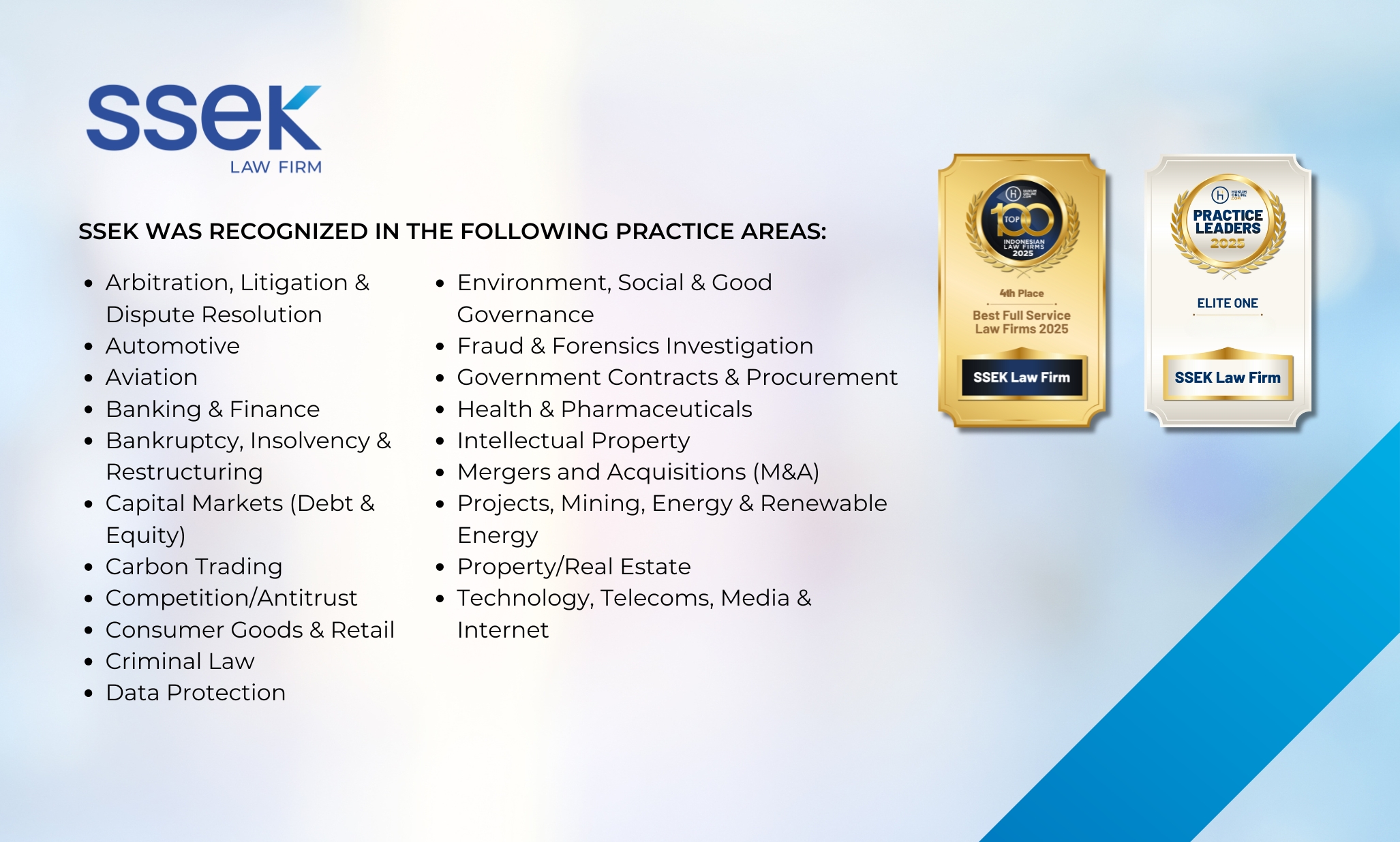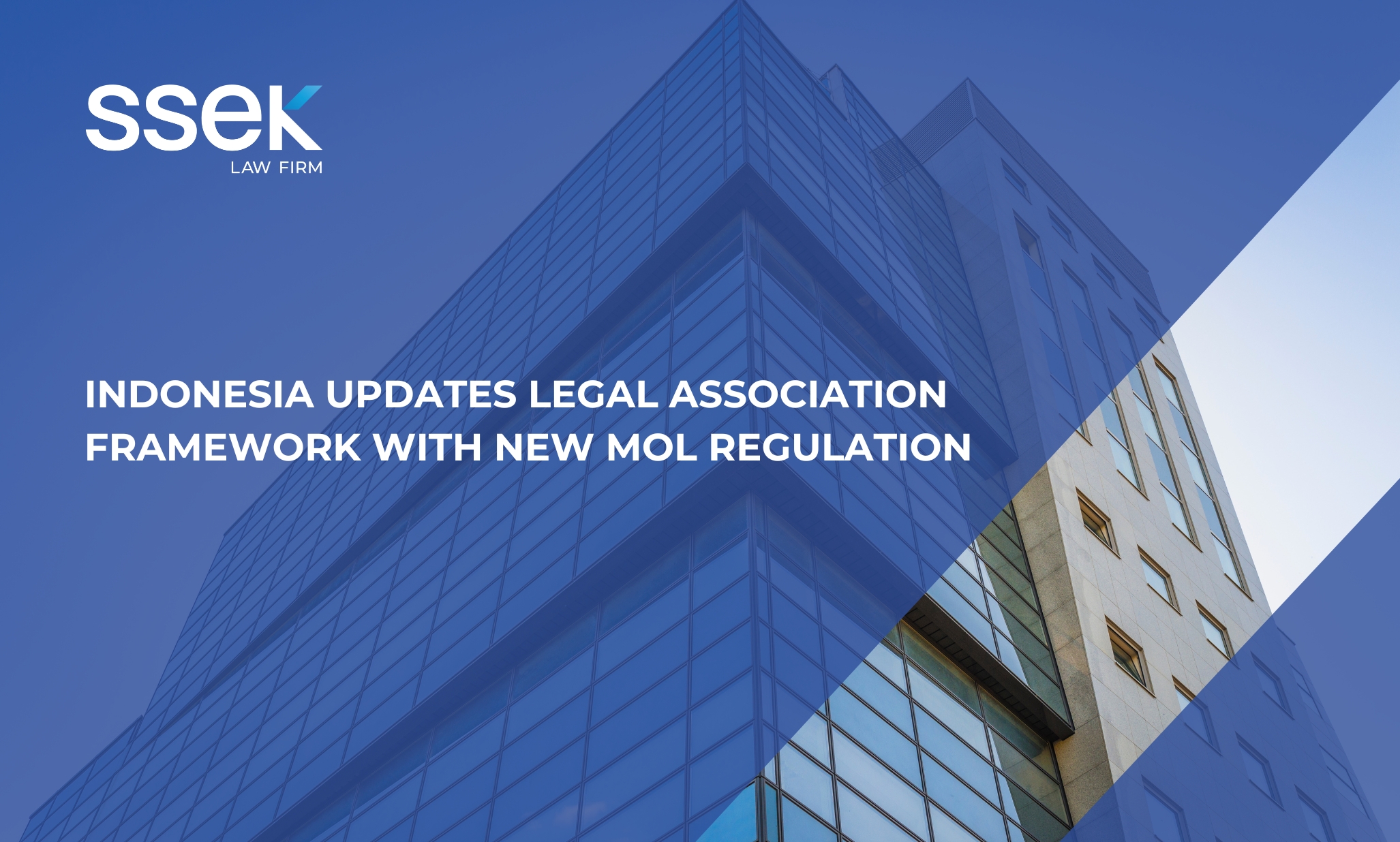


In 2023, the Indonesian government issued Government Regulation No. 12 of 2023 regarding the Issuance of Business Licenses, Ease of Doing Business, and Investment Facilities for Business Actors Within the Capital City of Nusantara (Ibu Kota Nusantara or “IKN”) (“GR 12/2023”) to attract investors to invest and do business in IKN and areas of Kalimantan that are part of the IKN economic superhub.
This regulation contained provisions regarding the issuance of business licenses, incentives, and investment facilities exclusive to business actors operating in IKN and certain areas of Kalimantan.
Now a new regulation has been issued with the apparent aim of improving the incentives available for investors in IKN.
Government Regulation No. 29 of 2024 regarding the Amendment to Government Regulation No. 12 of 2023 regarding the Issuance of Business Licenses, Ease of Doing Business, and Investment Facilities for Business Actors Within IKN (“GR 29/2024”) was issued on August 12, 2024.
While certain provisions under GR 12/2023 have been retained, GR 29/2024 introduces changes to the duration of land rights, environmental approval considerations, the powers of the Special Regional Government of IKN (“IKN Authority”), the employment of foreign workers, and housing and settlement areas.
Duration of Land Rights
Articles 18, 19, and 20 of GR 12/2023 provided that land rights in IKN given to business actors would last a maximum of 80 to 95 years, depending on the specific land right, given over three stages – granting of rights (maximum 35 years); extension of rights (maximum 25 years; renewal of rights (maximum 35 years).
The new regulation erases these stages so business actors are given a maximum of 80 to 95 years of land rights from the start, providing investors more certainty.
The duration varies according to the land right the business actor possesses, as follows:
- For Right to Cultivate (Hak Guna Usaha, or “HGU”), the business actor is given a maximum of 95 years through the first cycle, which can be extended for a second cycle for a maximum of 95 years if the business actor still fulfils the criteria for an HGU and based on an evaluation by the IKN Authority;
- For Right to Build (Hak Guna Bangunan, or “HGB”), the business actor is given a maximum of 80 years through the first cycle, which can be extended for a second cycle for a maximum of 80 years if the business actor still fulfils the criteria for an HGB and based on an evaluation by the IKN Authority; and
- For Right to Use, the business actor is given a maximum of 80 years through the first cycle, which can be extended for a second cycle for a maximum of 80 years if the business actor still fulfils the criteria for Right to Use title and based on an evaluation by the IKN Authority.
Business actors can apply to extend their land rights for a second cycle at least 10 years prior to the expiration of the current land rights.
Additionally, the IKN Authority will evaluate the land every five years from the issuance of the land rights for the following:
- Whether the land is still being properly cultivated and utilized in accordance with the circumstances, nature, and purpose of the initial issuance of the land rights;
- Whether the holder to the land rights still qualifies as a holder;
- Whether the conditions for the issuance of the land rights are fulfilled by the holder;
- Whether the land utilization is still in accordance with the spatial plan; and
- Whether the land has been abandoned.
Environmental Approval Considerations
GR 29/2024 amends Article 10 of GR 12/2023 to now provide several considerations for the issuance of an environmental approval for the business actor as a basic requirement to obtain the business licensing for their activities:
- An environmental feasibility decision, which is required for businesses and/or activities that must be accompanied by environmental impact analysis documents or environmental management and monitoring efforts; and/or
- A statement of willingness to manage and monitor the environment.
Additionally, the amended Article 10 provides that further provisions regarding the issuance of environmental approval shall be regulated by a regulation of the Head of the IKN Authority, which to date has not been issued.
Powers of the IKN Authority
GR 29/2024 provides that funds from the IKN budget can now be used by the IKN Authority to appoint certified or accredited institutions or experts to verify business licensing processes.
The amendment also gives the IKN Authority more authority in relation to the management of the land under its control. Previously, this authority encompassed:
- Allocation;
- Use;
- Utilization;
- Transfer; and
- Release and write-off assets of the land for which it holds management rights.
This authority now covers:
- Planning;
- Allocation;
- Use;
- Utilization;
- Security and maintenance;
- Disposal;
- Administration; and
- Supervision and control.
The amendment expands the power of the IKN Authority to provide investment facilities to include special levies, in addition to the previously existing special tax facilities and special revenue of IKN, and facilitation and provision of land, facilities and infrastructure for the implementation of investment activities in IKN.
The provision of investment facilities by the IKN Authority will be further regulated by a regulation of the Head of the IKN Authority, which to date has not been issued.
Clarity on Employment of Foreign Workers
GR 29/2024 adds two new paragraphs to Article 22 of GR 12/2023 to clarify that business actors that may employ foreign workers and be granted work permits for a period of 10 years and extendable are business entities that conduct business and/or activities in IKN. In addition, business actors that employ foreign workers must do the following:
- Appoint an Indonesian worker as a “companion worker” to the foreign worker;
- Carry out education and job training for companion workers as referred to in letter a in accordance with the qualifications for the position occupied by the foreign workers; and
- Return foreign workers to their home country at the end of their work in Indonesia.
Updated Provisions and Incentives Regarding Housing and Settlement Areas
GR 29/2024 clarifies that business actors operating in the housing and settlement sectors who cannot fulfil their balanced housing obligations in other regions may now do so in IKN, in accordance with the detailed spatial plan. (The balanced housing obligation requires business actors in the housing sector to build housing and residential areas in a balanced manner such that they include simple houses, mid-sized houses, and luxury houses.)
The Head of the IKN Authority shall determine the implementation of balanced housing obligations in accordance with the need for housing and settlement developments in IKN. The Head of the IKN will report the result of the implementation to the Minister of Home Affairs and the Minister of Public Works and Public Housing at least on an annual basis.
Additionally, business actors that intend to fulfil their balanced housing obligations in IKN will be given incentives including:
- Assistance for housing development programs;
- Tax relief for simple houses in accordance with applicable laws;
- Assistance with infrastructure, facilities and public utilities;
- Facilitation of land acquisition for housing developments and expansions;
- Support for access to balanced housing locations within IKN;
- Land and building title transfer tax exemption;
- Land and Building Tax relief for certain periods; and/or
- Recognition for contributions to the development of balanced housing.
It is important to note that the tax relief in points (f) and (g) also applies to consumers.
Conclusion
Collectively, the changes made by GR 29/2024 give the IKN Authority broader authority to provide investment facilities, which in turn should result in improved incentives for investors coming into IKN. Provisions such as tax exemption and lengthy fixed duration of land rights for business actors should open more doors to investment in the new capital.
This publication is intended for informational purposes only and does not constitute legal advice. Any reliance on the material contained herein is at the user’s own risk. All SSEK publications are copyrighted and may not be reproduced without the express written consent of SSEK.
Further reading:
SSEK Helps Host Special Event on Indonesia’s New Capital
Indonesia Capital City of Nusantara: New Regulation Establishes Special Authorities of IKN Authority









